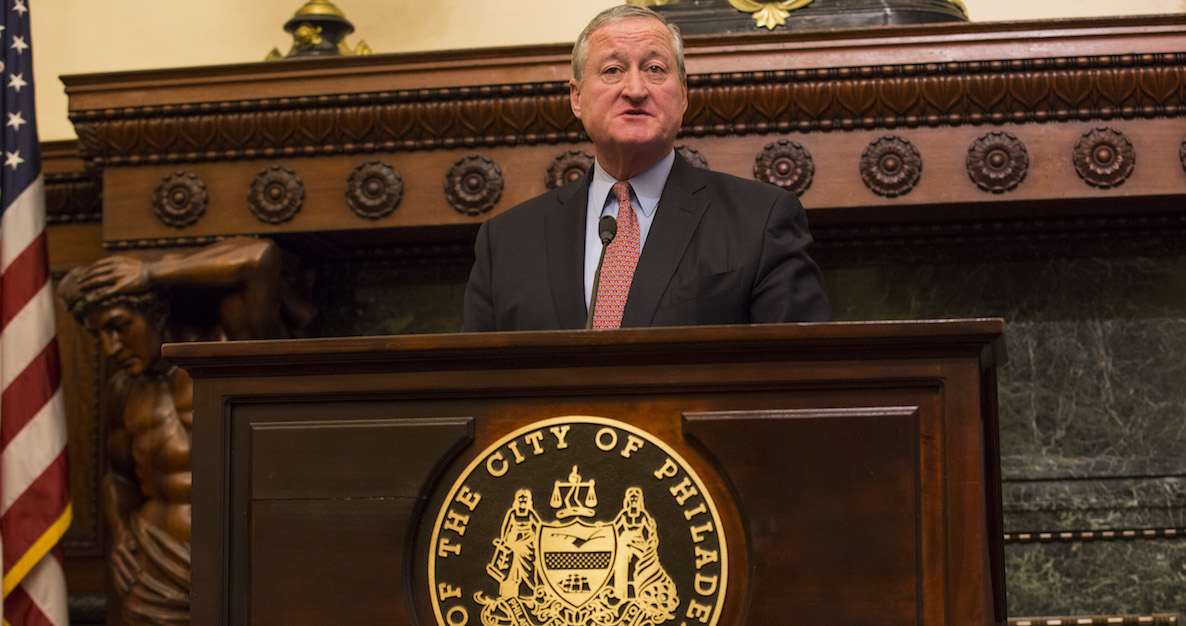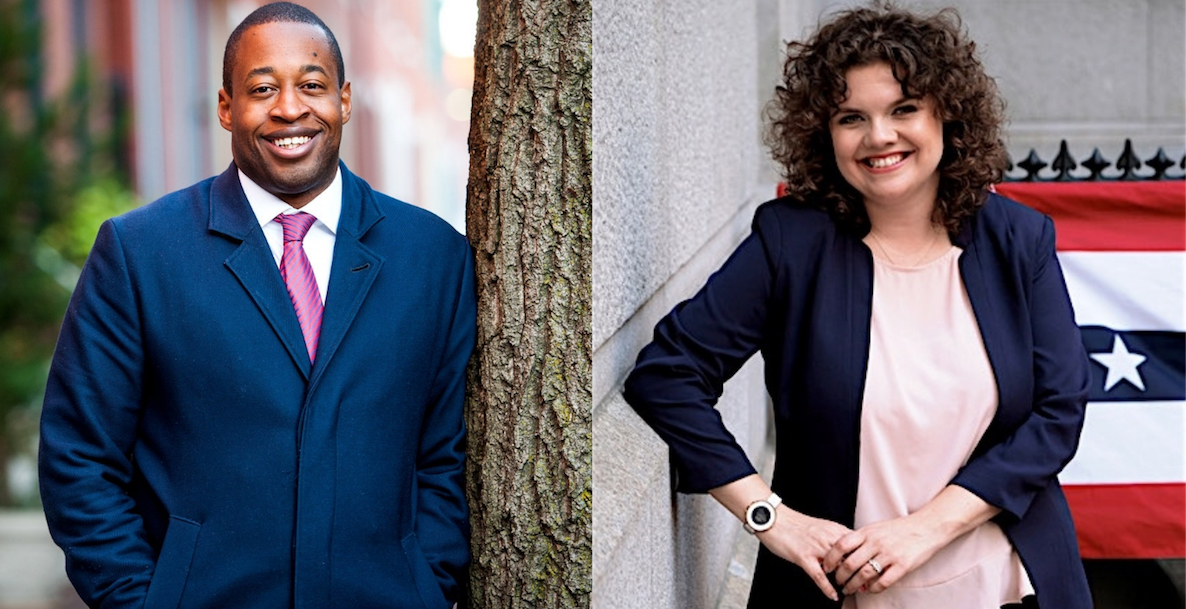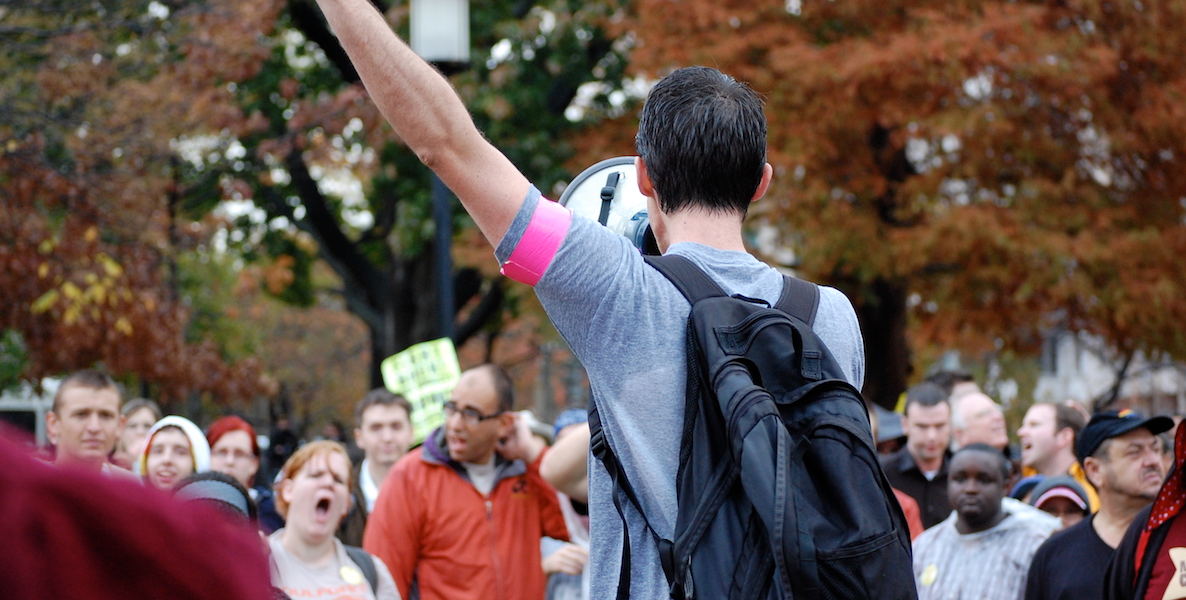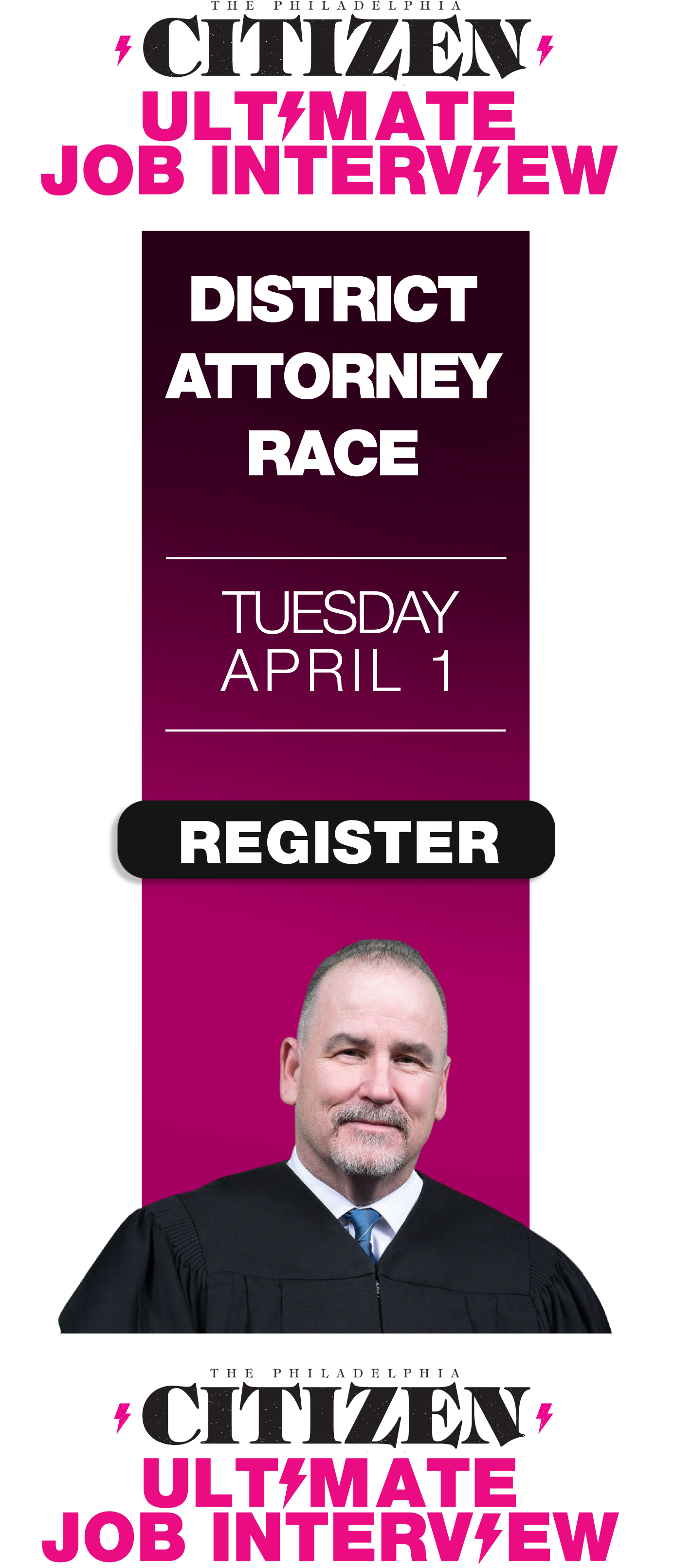It seems like, oh, 70 or 80 local political scandals ago, but it’s actually only been a little less than three years since the Philly disgrace du jour was the case of the AWOL City Commissioner. It was one of those stories that, in its sheer brazenness, seems to only happen here, in the city once infamously referred to by journalist Lincoln Steffens as “corrupt and contented.”
Learn more about the seriesWhat is a "New Blood"?
When he was made Chairman of the three-person, $10.9 million Commissioner’s office, his salary was bumped to $138,612. In a stunning display of chutzpah, Clark gave the Inquirer photos of himself in Africa while essentially on the taxpayer dime. Then he decided to pile injury atop injury by filing for a $500,000 DROP windfall. (DROP, you’ll recall, is the early retirement program never intended for elected officials.)
People rarely wax passionate about row offices, but not so these two. Both nerd out on elections administration and law, which leads to a radical thought: Maybe one way we’ll come to love our government is to populate it with people who love governing.
Surely, even here, Clark’s unscrupulousness wouldn’t stand, right? The op-ed pages raised hell, and Committee of Seventy led a coalition calling for the abolishment of an elected elections board. (We partnered with them on a petition that called for just that.) As products of the insular political ward system, the argument went, our commissioners are tasked with ensuring fair elections…at the same time many are part of local machine politics and even moonlight in support of candidates. No comparable city spends so much to oversee elections; most run elections through a mayoral appointment without incident. In fact, making the mayor accountable for free and fair elections has proven to be a good—though not infallible—system elsewhere.
The coalition led by Committee of 70 and Philly 3.0 filed a lawsuit that would have been the first step toward reforming the way we run elections—consistent with a plain reading of the City Charter—but the Pennsylvania Supreme Court (no beacon of transparency there) shot it down.
So that was that. A lot of us (mea culpa) moved on to cover the city’s next moral transgression or perp walk. (Looking at you, Seth Williams.) Until, that is, now. Because there’s an election next year and there are indications that at least some among us haven’t forgotten about the embarrassment that is our City Commissioner’s office.
Two young reformers have already announced their candidacies for the office. I caught up with both this week, and doing so made me wonder if it wasn’t, in retrospect, a good thing that the 70 lawsuit didn’t go through. The best, fairest, and most lasting way to effect reform, after all, is through the ballot box. Also, there’s this: People—even the most engaged among us—rarely wax passionate about row offices, but not so these two. Both nerd out on elections administration and law, which leads to a radical thought: Maybe one way we’ll come to love our government is to populate it with people who love governing.
Both argue that the timing for them couldn’t be better. Clark and the two other Commissioners—Republican Al Schmidt and Democrat Lisa Deeley—are up for reelection next year. It’s not clear that Clark is going to run again—it’s said that he’s told people he won’t. Either way, with turnout next year likely to be off the charts—thanks, Donald—we could see Philadelphia cast a resounding vote against the embarrassing politics of the way we’ve always done things. Fresh blood? New ideas? In Philly?
Kahlil Williams and Jen Devor say, Why not? Williams is a 40-year-old, African-American attorney at Ballard Spahr with a long-held passion for Philly and voting rights. He got hooked on the intricacies of election law while a Penn political science PhD student, so much so that Columbia Law beckoned; he also did stints at the NAACP Legal Defense Fund and the Brennan Center for Justice. It fueled a passion for election reform.
“Voting is our most basic right,” he says, “and I saw how the abuse of it could be used as a tool to miseducate and subjugate.”
Williams argues that the eyes of the nation very well might be upon Pennsylvania and Philadelphia come the 2020 election—especially given a certain megalomaniac’s tendency to proclaim voter fraud where there is no evidence to suggest it exists. That, plus the presence of new voting machines, raises the stakes: We can’t afford to be part of a narrative that casts doubts about the integrity of our voting system.
Especially in this town, passion and idealism without pragmatism has long turned potential leaders into also-rans. These two reformers may have staying power, for both clearly see Philly for what it is—while imagining what it could be.
Williams, who lives in Fairmount with his wife and their newborn baby, rattles off a reform agenda, and it includes lobbying at the state level for early voting, seeking to randomize ballot position for municipal elections, and creating curricula for middle and high school students that trains a next generation in the skills of citizenship.
Like Williams, Jen Devor was thinking about running for Commissioner even before Clark’s embarrassing shenanigans. “When I saw that the Committee of 70 lawsuit wasn’t going to go through, I decided I wouldn’t sit back anymore,” says the 34-year-old Point Breeze block captain, ward committeeperson, election poll worker and, for the last six plus years, the director of partnerships at Campus Philly—a gig she’s giving up in order to run full-time.
Devor’s background is in marketing and communications, and she says she wants to turn the Commissioner’s office into a “public information agency.” The city, she says, does a good job registering voters—but a poor job of getting the legions of registered voters who don’t make it to the polls to come out, because we don’t make voting easy enough (“voting should be as easy as ordering @Wawa hoagie” she recently tweeted) and we don’t explain the process. “I have a powerpoint that I present, and it includes a ballot breakdown that walks you through who you’re voting for and why,” she says. “People don’t feel connected to candidates or the process and we have to create materials that get them connected.”
Articles by Larry PlattRead More
Like Williams, Devor has a long list of items on her agenda, including shoring up election day operations and smoothing the transition to those new voting machines. And she says her life experience fuels her desire to make a civic impact. “I grew up in New Jersey, raised by a single mother, and I almost failed out of high school,” she says. “I know what it’s like to not have the tools and resources to succeed. When it comes to voting, we haven’t given ourselves the tools and resources to succeed.”
Despite their palpable passion, there’s not a lot in the platform of either Devor or Williams that you can imagine fueling a popular uprising. Both have good ideas, though, and maybe that’s enough. In Philadelphia, after all, Commissioner candidates who see the office as a way to increase civic participation and who will actually show up to work (and vote themselves!) is what passes for reform.
Both Devor and Williams are sympathetic to the one populist idea that could capture the public imagination when it comes to the commissioner’s race. Both agree when I suggest that row offices—which are administrative in nature—ought not to be elected. But neither will go so far as to run for the office on the platform of abolishing it. Both said roughly the same thing: This is the system we have for now, so it behooves us to govern as effectively as possible.
And, as much as you’d like to see the costly office blown up, that’s probably precisely the right answer: Talking to Devor and Williams, there is no shortage of passion and idealism. But, especially in this town, passion and idealism without pragmatism has long turned potential leaders into also-rans. These two reformers may have staying power, for both clearly see Philly for what it is—while imagining what it could be.








